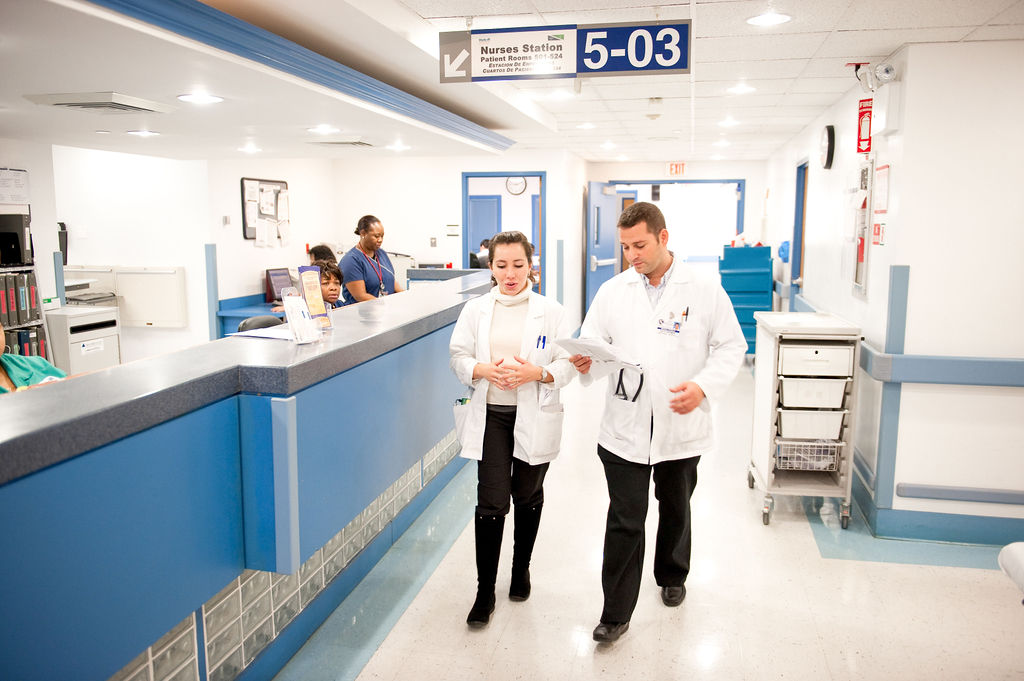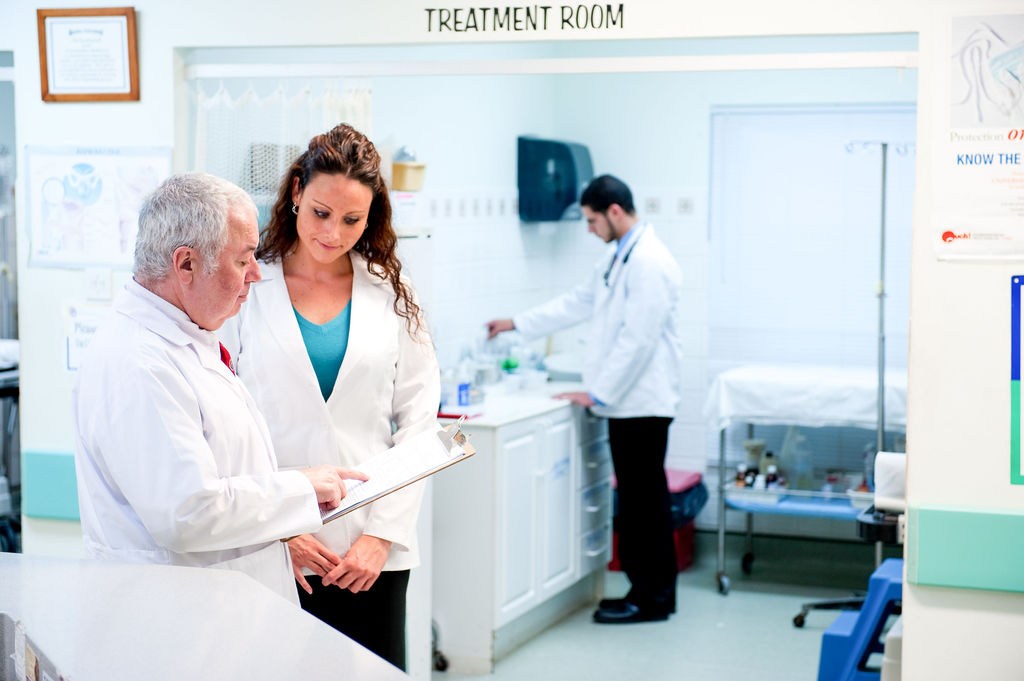
What Is a Proctologist? Colorectal Surgeons Explained
Learn more about the field of proctology and the journey ahead for aspiring medical doctors.
If you ever have any issues with your digestive system, you’ll likely be referred to a proctologist, or colorectal surgeon, as they are more formally known today.
So, what does a proctologist do? Let’s explore the roles and responsibilities, career opportunities, conditions they treat, and more.
What Is a Proctologist?
A proctologist is specially qualified to treat conditions of the lower gastrointestinal tract, which encompasses the large intestine, including your colon, rectum and anus.
A proctologist performs a wide range of procedures and surgeries to treat conditions from rectal cancer to Crohn’s disease. They possess a strong understanding of the complex structures of the human digestive system, and play a vital role in both preventative care and complex surgeries.
What Does a Proctologist Do?
So, you know what a proctologist (colorectal surgeon) is, but what does a proctologist do?
A proctologist performs extensive duties, including diagnosing and evaluating symptoms of lower gastrointestinal issues, performing diagnostic procedures, prescribing long and short-term treatment, conducting surgeries, and managing chronic and terminal illnesses.
They practice endoscopic and surgical techniques and can treat complex conditions. Patients are usually referred to them for specialist advice and diagnosis.
Here are some treatment techniques proctologists use:
- Colonoscopy: A key diagnostic tool used to examine the colon and rectum using a flexible tube and camera to check for diseases like rectal cancer and signs of inflammatory bowel diseases.
- Enteroscopy: This treatment uses a technique similar to a colonoscopy to provide an endoscopic examination of the small intestine’s lining and diagnose small bowel conditions.
- Sigmoidoscopy: This test focuses on the rectum and sigmoid colon, aiming to identify issues in the lower part of the digestive tract.
- Laparoscopy: An exploratory examination of abdominal organs using a laparoscope that passes through a small incision in the abdomen.
- Laparoscopic Surgery: While a laparoscopy aims to identify medical issues, laparoscopic surgery is a minimally invasive procedure that operates on internal organs.
- Robotic Surgery: These specialists also practice robotic surgery for surgical procedures like laparoscopic surgery. Robotic surgery uses a robotic device to carry out the procedure, which the surgeon controls.



Conditions Treated by Proctologists (Colorectal Surgeons)
The scope of colorectal surgery is broad and encompasses a wide range of medical and surgical treatments. Let’s explore some of the conditions that colorectal surgeons treat:
Colorectal and gastrointestinal cancers
- Colon cancer
- Rectal cancer
- Anal cancer
- Appendix cancer
- Peritoneal carcinomatosis
- Gastrointestinal stromal tumor
- Neuroendocrine tumor
- Hereditary nonpolyposis colorectal cancer (HNPCC)
Inflammatory and infectious bowel conditions
- Diverticulitis
- Ulcerative colitis
- Microscopic colitis
- Pseudomembranous colitis
- Crohn’s disease
- Appendicitis
- Necrotizing enterocolitis
- Ischemic colitis
Structural defects and complications
- Pelvic organ prolapse
- Rectal prolapse
- Perianal abscess
- Perineal hernia
- Rectovaginal fistula
- Anal fistula
Benign anorectal conditions
- Fecal impaction
- Constipation
- Rectal ulcer
- Hemorrhoids
- Anal warts
- Anal fissure
- Rectal bleeding
- Gastrointestinal bleeding
Proctologists vs Gastroenterologists: What’s the Difference?
Proctologists are often confused with gastroenterologists, as both medical professionals specialize in the digestive system.
The main difference is that gastroenterologists have a broad focus on the entire digestive system, including the esophagus, stomach and small intestine, while proctologists focus on the rectum, anus and lower gastrointestinal tract.
Proctologists and gastroenterologists often collaborate to provide well-rounded care to patients.
Educational Pathway to Becoming a Proctologist
Like many medical specialties, the journey to becoming a proctologist is long and challenging. However, there are many benefits, including a rewarding career path and specialized skills.
Those seeking a career as a proctologist often earn a science or health-related bachelor’s degree before completing an MD degree program in medical school. This is followed by a general surgery residency, which is typically five years of training, and a colorectal surgery fellowship.
Beneficially for aspiring physicians, Medical University of the Americas (MUA) offers accelerated pre-med programs that can help future doctors bypass the undergraduate portion of this journey. Learn more about our 5-year BSc/MD program and 6-year BSc/MD program for more information.
Many proctologists then seek board certification to practice across the U.S., usually through the American Board of Colon and Rectal Surgery.
Career Opportunities and Advancement
Colorectal surgeons can pursue a wide range of career paths, from academic medicine to public or private practice. Proctologists can also specialize in a particular area, such as oncology. Due to the growing demand for their services, colorectal surgeons have many opportunities for career advancement and global career paths.
The average proctologist salary rewards professionals for their expertise and specialized skills. According to SalaryExpert, colorectal surgeons in the U.S. earn an average salary of $491,577 USD per year.
Pursue an MD Degree at MUA
Now that you know more about colorectal surgery and understand the role of a proctologist, are you ready to start your own journey to a rewarding career in proctology?
One of the key steps to becoming a proctologist is earning a Doctor of Medicine (MD) degree. Explore the 4-Year MD Program at MUA to discover how we can help you achieve your educational goals!
The MUA MD program features two years of classroom and lab-based learning on our Nevis campus, followed by two years of clinical rotations at affiliated teaching hospitals, clinics and medical centers in the U.S., and select elective rotation sites in Canada.
Once they complete this journey, our students progress into residency at high rates and then go on to practice in the U.S., Canada and internationally!
To learn more about the MUA MD student experience, check out this testimonial video:
So, what are you waiting for? Invest in your medical career today by applying now or contacting us with any questions!
FAQS About Proctology
According to SalaryExpert, the average proctologist salary in the United States is $491,577 USD per year and the average salary in Canada is $447,135 CAD per year.
Typically, it takes around 14 years to become a qualified proctologist. This includes a four-year undergraduate degree, a four-year MD program, a five-year general surgery residency training program and a one-year specialized fellowship. However, the undergraduate portion of the journey can be bypassed in certain MUA pre-med programs!
A woman may be referred to a proctologist for various reasons, including issues like rectal bleeding, hemorrhoids or constipation. They may also require treatment for more complex issues like colon and rectal cancer or pelvic floor disorders.
The seriousness and risks involved with colorectal surgery depend on the type of surgical procedure and the condition. While procedures like laparoscopic surgery are minimally invasive, others to treat colon or rectal cancer and inflammatory bowel disease may be more complex and involve major surgery.